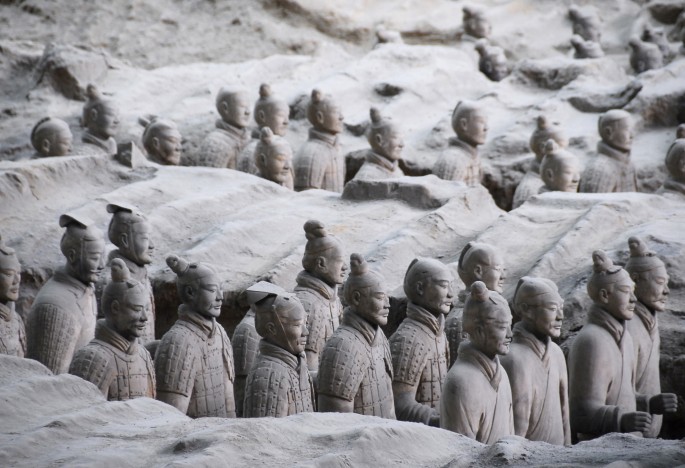Chinese archaeologists excavating the legendary burial pit of the country's first emperor in the ancient capital of Xi'an are using a digital scanning device to examine the mausoleum where thousands of terracotta warriors stand guard.
According to China Daily, China launched on Thursday a second excavation project on the famous site. This time the focus would be on Pit No. 2, which is located near the tomb of Emperor Qinshihuang, who was the founder of the Qin Dynasty (221-206 B.C.).
ECNS reports indicate that archaeologists have already made unusual discoveries in the tomb; they found colorful statues in the pit during the first excavation project that took place between 1994 and 2008. The project was allegedly stopped because of lack of personnel and advanced protective technology.
Zhu Sihong, the leader of the excavation team, said that the use of advanced technologies would play a huge role in the second excavation project.
According to Zhu, the team will employ a digital scanning device to collect data on artifacts and thus build a database which will assist future research.
To date, scientists estimate that there are around 1,400 clay figures including horses and 89 chariots that are yet to be excavated. Although this may be smaller than the find in Pit No. 1, the second pit reportedly features a mixture of Terracotta troops of chariots, archers and a cavalry.
Pit No. 2 is also famous for colorful warriors that have been discovered there, including a rare specimen with a green face. These colorful discoveries have lead scientists to believe that the army was once painted with different colors that have faded through time.
The 56-square-kilometer Mausoleum of Qinshihuang is the world's largest underground burial chamber. In 1974, an army of more than 7,000 life-sized Terracotta Warrior and horses were discovered at the site.



























